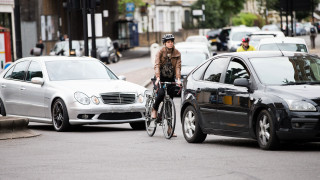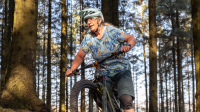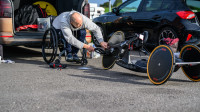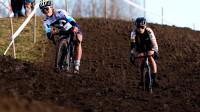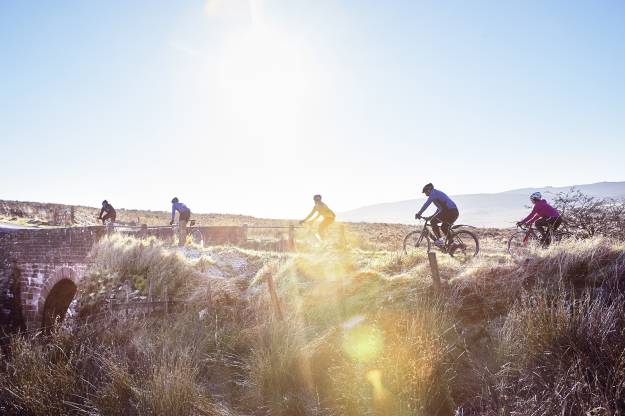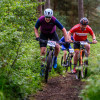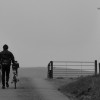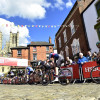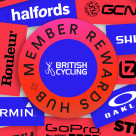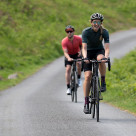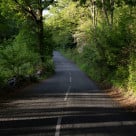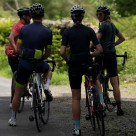Whether you should have lights on during the day is a contentious issue amongst cyclists with one camp singing their praises for increasing visibility and the other decrying that, like helmets and hi-viz clothing, they put an unfair onus of responsibility on cyclists.
Although studies have shown some of the possible benefits of daytime running lights, we feel that they should be viewed as an additional option to the fundamentals of positioning in the road, good road-craft, group riding skills and a bit of common sense.
Not in the gutter
Many newer riders perceive they are safest when riding as close to the curb or side of the road as possible. Aside from the gutter often being full of puncture causing debris and potential hazards such as drainage grates, riding in it will make you far less visible to other road users and can lead to them to trying to squeeze pass you.
Primary Position
Riding in primary position, also known as taking the lane, is riding in the middle of a lane in the position normally taken by a motorist. In this position you will be most visible and prevent other road users from attempting dangerous overtakes.
Secondary Position
If the road is wide enough to allow safe overtaking and you don’t feel as though your safety or visibility is compromised, you can ride in secondary position. This is roughly 1m to the left of the traffic flow and not less than 0.5m from the edge of the road. The secondary position can be especially useful on many minor roads.
Commute Smart: Correct road positioning
Group riding
A group of cyclists are always more visible than a solo rider and, with good group skills and etiquette, a well-disciplined group can benefit all road users. Knowing when to pair up, when to single out and being considerate of other road users can make the roads better for all.
Ride Smart: How to ride in a group
Clothing
In the sort of mixed light conditions that you can typically encounter during a daytime ride in the UK, there’s no one type of clothing that will get you seen at all times. Fully reflective garments can easily be washed out in flat daytime light when there are no headlights to bounce off them. Even hi-viz, in certain light conditions, isn’t a guarantee of being seen. The key is to be sensible and reactive to the conditions. Also, if you do want to enhance your visibility, moving body parts, such as your feet and hands, are the most effective to make bright.
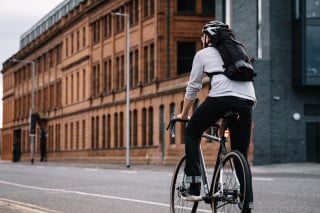
Lights
If you know that your route includes any long tunnels, sections with overhanging trees or if you just want to stand out a bit more, you might want to consider running lights during the day. Also if you’re heading out in the late afternoon or evening and there’s a chance your ride might overrun, you should have lights with you and, if you’ve got them, why not have them on?
Buying a daytime running light
British Cycling uses the insights detected from See.Sense’s intelligent bike lights to help improve cycling conditions across the UK. British Cycling Members can receive a discount on a set click here for more details


